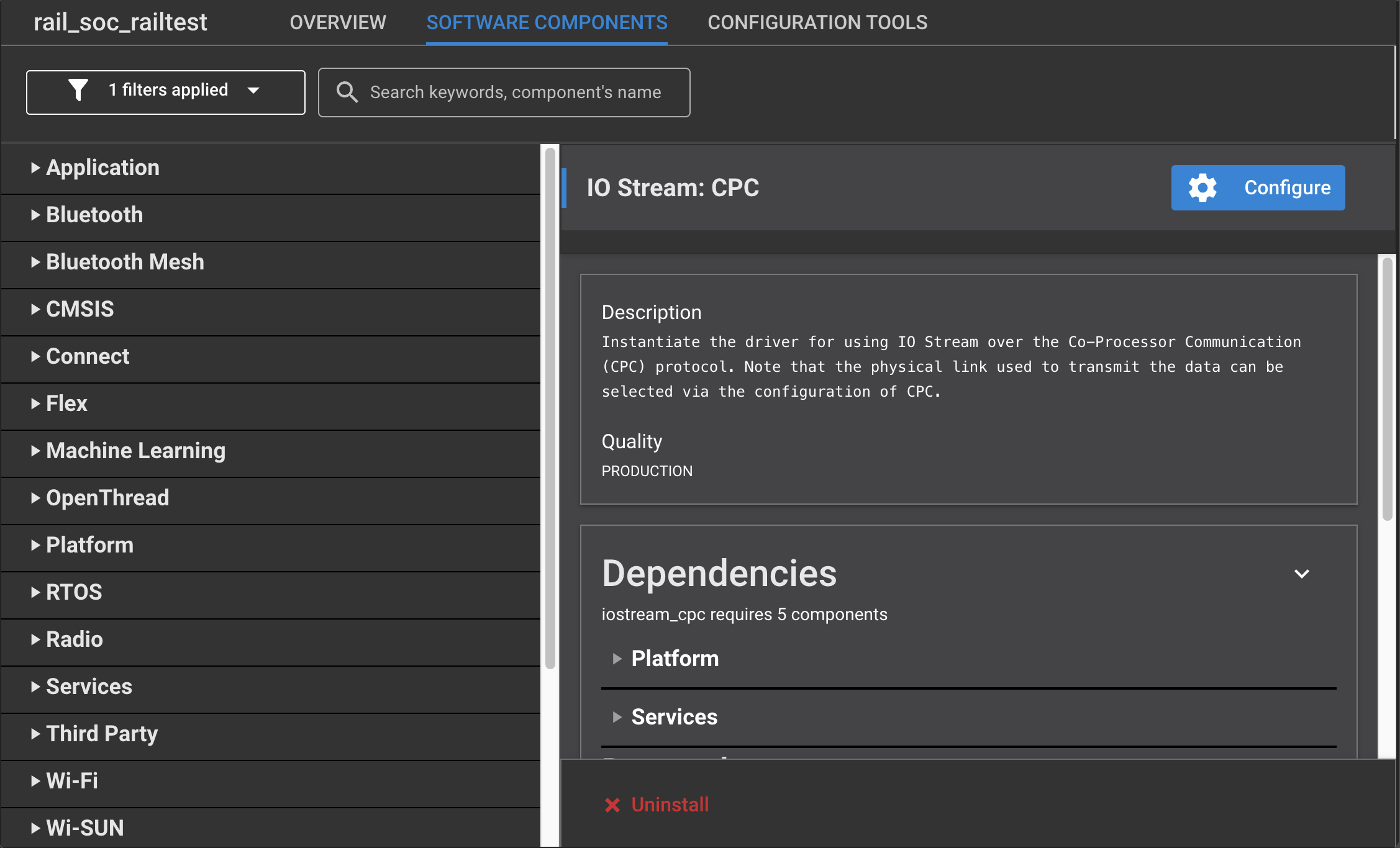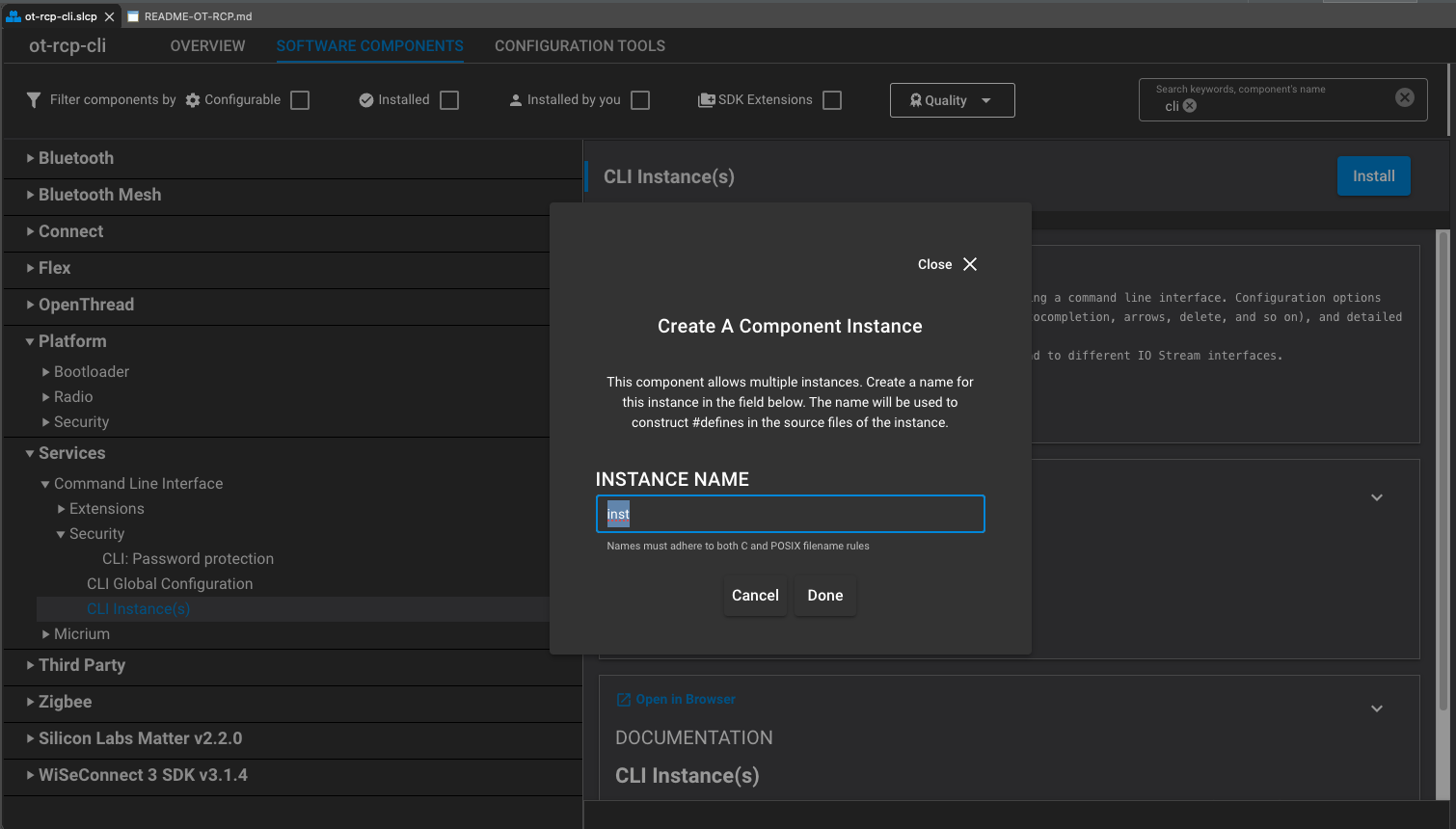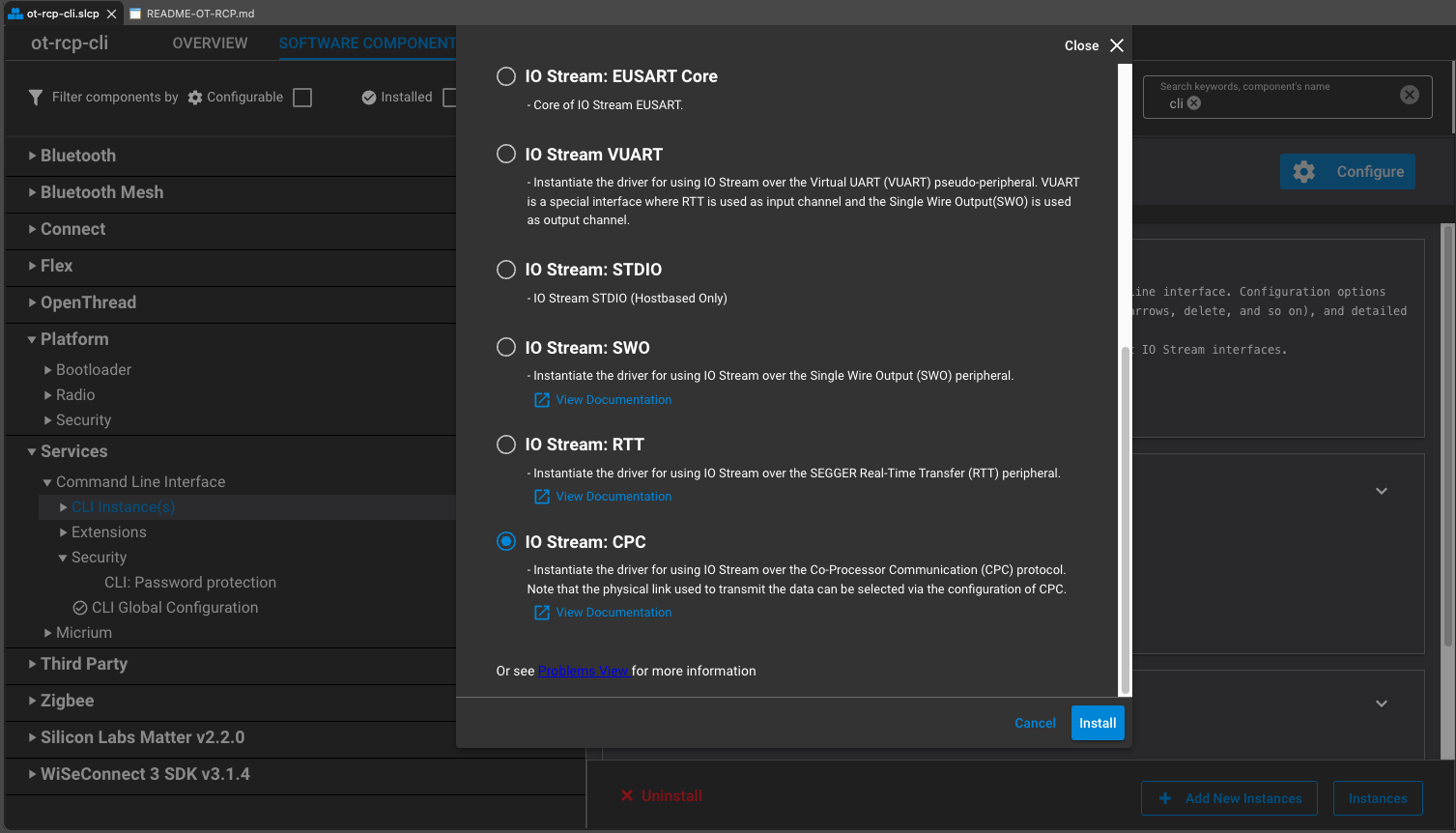Modifications to add a dedicated CPC path for a CLI to RCP
- Select the project file (.slcp)
- go to the Software Components view

-
install CLI instance(s) and add as well IO Stream: CPC as you are asked for an IO Stream component addition


-
in IO Stream: CPC component configuration increase the transmit buffer size to 1024 at least so that the command responses won't get truncated.

-
open sl_cli_config_inst.h in the config directory of your project and modify line 110 as:
#define SL_CLI_INST_IOSTREAM_HANDLE sl_iostream_cpc_handle
-
Then we need to add some CLI commands to test. Read Cli Service documentation for more info
in app.c #include section add:
#include "sl_cli.h" #include "sl_cli_config_inst.h"in app.c add the following functions:
// Create command handlers for the commands void echo_str(sl_cli_command_arg_t *arguments) { char *ptr_string; for (int i = 0; i < sl_cli_get_argument_count(arguments); i++) { ptr_string = sl_cli_get_argument_string(arguments, i); } } void echo_int(sl_cli_command_arg_t *arguments) { int8_t argument_value; for (int i = 0; i < sl_cli_get_argument_count(arguments); i++) { argument_value = sl_cli_get_argument_int8(arguments, i); } } // Create command details for the commands. The macro SL_CLI_UNIT_SEPARATOR can be // used to format the help text for multiple arguments. static const sl_cli_command_info_t cmd__echostr = \ SL_CLI_COMMAND(echo_str, "echoes string arguments to the output", "Just a string...", {SL_CLI_ARG_WILDCARD, SL_CLI_ARG_END, }); static const sl_cli_command_info_t cmd__echoint = \ SL_CLI_COMMAND(echo_int, "echoes integer arguments to the output", "Just a number...", {SL_CLI_ARG_INT8, SL_CLI_ARG_ADDITIONAL, SL_CLI_ARG_END, }); // Create the array of commands, containing three elements in this example static sl_cli_command_entry_t a_table[] = { { "echo_str", &cmd__echostr, false }, { "echo_int", &cmd__echoint, false }, { NULL, NULL, false }, }; // Create the command group at the top level static sl_cli_command_group_t a_group_0 = { { NULL }, false, a_table };in app.c app_init() function add the following to enable the above CLI commands:
// And finally call the function to install the commands. sl_cli_command_add_command_group(sl_cli_default_handle, &a_group_0); -
Once you have done all of the above, your project is ready and you can compile and flash it.